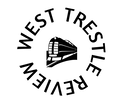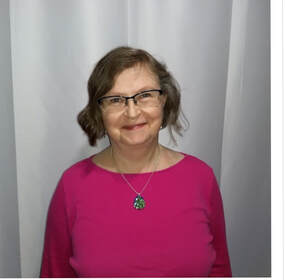Barely There
On this gallery’s far wall hangs a landscape, its sky of forget-me-not blue the same hue as Craig’s eyes, the same blue as a boy baby’s blanket. Its gentle river unfurls her arms, cradling a valley of fields, forests, and pastures tumbled like rumpled quilts tossed back on the bed after love making, and stabs me with longing for home on the farm, because if someone, anyone, might condole with me now, it would be Mother, my grandmothers, sisters, and aunts.
Certainly not Craig for all his good intentions, not Craig for all his tender concern, helpless eyes, cups of Earl Grey, hot water bottles, fleece blankets warmed in the dryer, and his whispering-wind, pitiful voice. Certainly not my favorite Thai ginger chicken which he promised would help nausea, for which he walked six blocks, and I ate six bites and promptly vomited.
Then Craig decided to knead solace into my soul by massaging skin, sinew, and muscle, as I wondered if his dive of despair could ever equal my depths? Unable to suffer his masculine hands a moment longer, I feigned reprieve from sorrow. “Come,” I said, “an outing…a walk would be good,” and he immediately brightened at the prospect of an active, controllable, manly solution to my uncontrollable feminine issue.
Under iron skies and in a numb fog we strolled the streets of downtown which mocked us with primary colors, playful toy shops, and a children’s museum among jeering strands of fairy lights, where only a few years ago the scene better suited my mood — plywood and cardboard in windows bidding farewell to restaurants, men’s clothing, family hardware, and jewelry stores — now replaced by this fertile revival of coffee shops, spas, vintage boutiques, book stores, and a Chinese tea house whose strongest green tea doesn’t ease cramping. I despise cities who nurture life to full term with a spurt.
Clouds suddenly rupture.
A downpour.
A deluge.
We take refuge inside this gallery which we’d previously visited just once for the free wine and hors d’oeuvres, and Craig and I had dressed in cahoots as Jay Gatsby and Daisy in outfits cobbled from Goodwill, laughed inappropriately, and concocted ironic phrases as we pointed at canvases over $5,000, and over our heads in substance and meaning, then dreamed of an untroubled future. But that was years ago.
Several losses ago.
That was a lark.
That was before.
In abundant beauty lies pain, reads the pompous, glossy brochure. In brownian motion Craig and I shuffle clockwise among the exhibits in this brick-walled institution anchored by creaking original hardwood floors and exposed beams sprouting spotlights — hot lights spotting my pain, tracking my movements like prey, ready to paw my raw flesh. Each painting pares back another stratum of anguish, which may be the power of art speaking to all human hearts, or the power of art speaking to one crumbling heart.
Then a pale waif in black lace, fishnet, and boots dares to regard a black-and-white photograph of sweat droplets cascading from a boxer’s glove, and murmur, “How achingly, deeply sublime.” Absurd. My anger festers. This undergraduate mimicking critics, this little imposter with all of her life strewed before her knows nothing of truth or torment.
In the middle of movement Craig stops to stare, placing on hold his mind’s phone call. The glazed ceramic sculpture he’s puzzling circles and climbs, my best guess at a glance is two beings entwined — making love, making life the product of love, so thank God for plexiglass, or I swear, as refined and elegant as it is, and as expensive as the tag declares it to be, I’d smash it to the floor.
As we enter the next gallery room, a modern and monstrous piece greets me — mixed media, monochromatic, red in all shades. The innocent gloss of pinkish Maraschino, the ruby of promise, and furious scarlet, with slashes of paint over yarn fibers and rope, textiles, and ridges of handmade rice paper dipped and dripping in blood, and I recognize this poignant pigment, my blood. Now finally this, this is the art piece for me on this day. I will heave my used pad at this painting.
What’s left of
our barely there
will adhere.
Certainly not Craig for all his good intentions, not Craig for all his tender concern, helpless eyes, cups of Earl Grey, hot water bottles, fleece blankets warmed in the dryer, and his whispering-wind, pitiful voice. Certainly not my favorite Thai ginger chicken which he promised would help nausea, for which he walked six blocks, and I ate six bites and promptly vomited.
Then Craig decided to knead solace into my soul by massaging skin, sinew, and muscle, as I wondered if his dive of despair could ever equal my depths? Unable to suffer his masculine hands a moment longer, I feigned reprieve from sorrow. “Come,” I said, “an outing…a walk would be good,” and he immediately brightened at the prospect of an active, controllable, manly solution to my uncontrollable feminine issue.
Under iron skies and in a numb fog we strolled the streets of downtown which mocked us with primary colors, playful toy shops, and a children’s museum among jeering strands of fairy lights, where only a few years ago the scene better suited my mood — plywood and cardboard in windows bidding farewell to restaurants, men’s clothing, family hardware, and jewelry stores — now replaced by this fertile revival of coffee shops, spas, vintage boutiques, book stores, and a Chinese tea house whose strongest green tea doesn’t ease cramping. I despise cities who nurture life to full term with a spurt.
Clouds suddenly rupture.
A downpour.
A deluge.
We take refuge inside this gallery which we’d previously visited just once for the free wine and hors d’oeuvres, and Craig and I had dressed in cahoots as Jay Gatsby and Daisy in outfits cobbled from Goodwill, laughed inappropriately, and concocted ironic phrases as we pointed at canvases over $5,000, and over our heads in substance and meaning, then dreamed of an untroubled future. But that was years ago.
Several losses ago.
That was a lark.
That was before.
In abundant beauty lies pain, reads the pompous, glossy brochure. In brownian motion Craig and I shuffle clockwise among the exhibits in this brick-walled institution anchored by creaking original hardwood floors and exposed beams sprouting spotlights — hot lights spotting my pain, tracking my movements like prey, ready to paw my raw flesh. Each painting pares back another stratum of anguish, which may be the power of art speaking to all human hearts, or the power of art speaking to one crumbling heart.
Then a pale waif in black lace, fishnet, and boots dares to regard a black-and-white photograph of sweat droplets cascading from a boxer’s glove, and murmur, “How achingly, deeply sublime.” Absurd. My anger festers. This undergraduate mimicking critics, this little imposter with all of her life strewed before her knows nothing of truth or torment.
In the middle of movement Craig stops to stare, placing on hold his mind’s phone call. The glazed ceramic sculpture he’s puzzling circles and climbs, my best guess at a glance is two beings entwined — making love, making life the product of love, so thank God for plexiglass, or I swear, as refined and elegant as it is, and as expensive as the tag declares it to be, I’d smash it to the floor.
As we enter the next gallery room, a modern and monstrous piece greets me — mixed media, monochromatic, red in all shades. The innocent gloss of pinkish Maraschino, the ruby of promise, and furious scarlet, with slashes of paint over yarn fibers and rope, textiles, and ridges of handmade rice paper dipped and dripping in blood, and I recognize this poignant pigment, my blood. Now finally this, this is the art piece for me on this day. I will heave my used pad at this painting.
What’s left of
our barely there
will adhere.
Angela Joynes is a disabled Canadian writing now living in Tennessee. She holds a BA, MD, and a Certificate in Creative Writing from MTSU. She has previously published in Flash Fiction Magazine, Fleas On The Dog, Shift, Friday Flash Fiction, Microfiction Monday Magazine, and Ilanot Review.
Art: The New Parts, oil on canvas, Rebecca Pyle
Originally published in Kithe.
Originally published in Kithe.
Powered by Women

